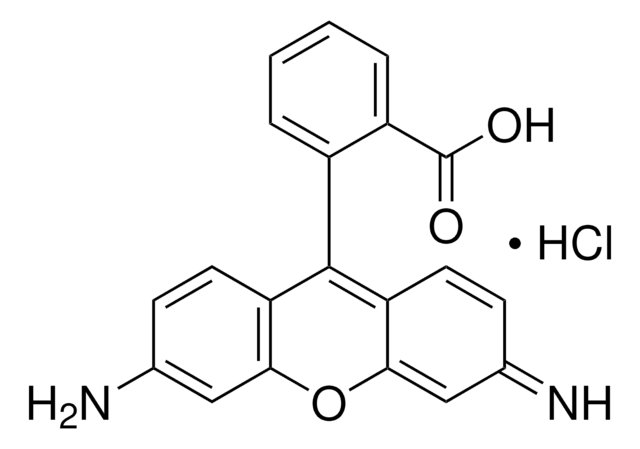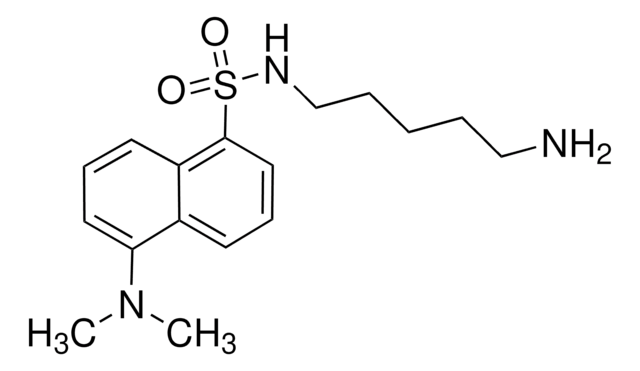A7847
Acridine Orange 10-nonyl bromide
≥90% purity (HPLC), powder or solid
Synonym(s):
10-Nonylacridine orange bromide, 3,6-Bis(dimethylamino)-10-nonylacridinium bromide
About This Item
Recommended Products
product name
Acridine Orange 10-nonyl bromide,
Assay
≥90% (HPLC)
Quality Level
form
powder or solid
color
orange to red
mp
≥250 °C (lit.)
solubility
ethanol, DMSO: soluble
ε (extinction coefficient)
76-88 at 491-497 nm in methanol
fluorescence
λex 515-523 nm
application(s)
diagnostic assay manufacturing
hematology
histology
storage temp.
room temp
SMILES string
[Br-].CCCCCCCCC[n+]1c2cc(ccc2cc3ccc(cc13)N(C)C)N(C)C
InChI
1S/C26H38N3.BrH/c1-6-7-8-9-10-11-12-17-29-25-19-23(27(2)3)15-13-21(25)18-22-14-16-24(28(4)5)20-26(22)29;/h13-16,18-20H,6-12,17H2,1-5H3;1H/q+1;/p-1
InChI key
DRBHTUDHPPBMCD-UHFFFAOYSA-M
Looking for similar products? Visit Product Comparison Guide
Application
Storage Class Code
11 - Combustible Solids
WGK
WGK 3
Personal Protective Equipment
Choose from one of the most recent versions:
Already Own This Product?
Find documentation for the products that you have recently purchased in the Document Library.
Customers Also Viewed
Our team of scientists has experience in all areas of research including Life Science, Material Science, Chemical Synthesis, Chromatography, Analytical and many others.
Contact Technical Service
